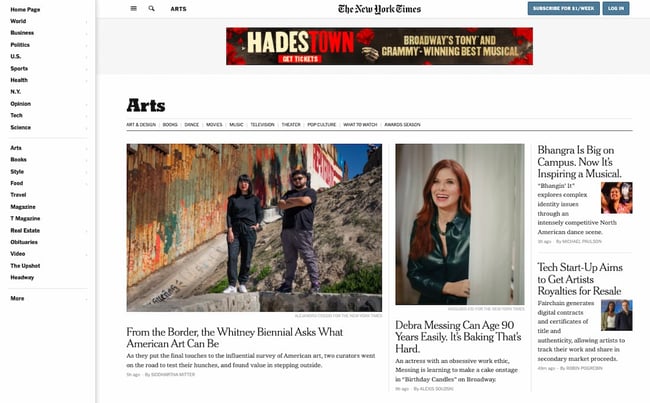News Websites - The Facts
Fascination About News Websites
Table of ContentsUnknown Facts About News WebsitesThings about News WebsitesThe Best Strategy To Use For News WebsitesThe Single Strategy To Use For News WebsitesThe Ultimate Guide To News Websites
It was down in the UK and Brazil but up a few other nations, such as Greece, Bulgaria, and Poland (News Websites). This year, for the very first time, we inquired about the various manner ins which people avoid the news and located that around half of avoiders (53%) were attempting to do so in a broad-brush or routine means as an example, by switching off the radio when the news began, or by scrolling past the information in social mediaYou stated that you attempt to actively stay clear of information.

I'm most likely choosing to find out more light-hearted tales than I made use of to right now. M, 51, UK Switching my back on information is the only method I feel I can deal often. I have to knowingly make the initiative to avert for the purpose of my own psychological health.
Fascination About News Websites
Careful avoidance of Ukraine news was highest possible in a lot of the countries closest to the problem, reinforcing searchings for from our added survey in 2015, quickly after the battle had actually begun. Our data may not recommend an absence of interest in Ukraine from nearby countries yet instead a need to manage time or protect psychological wellness from the really real horrors of war.
Contrasting Finland with a politically polarised nation such as the USA (see following graph) that is much less influenced by the battle, we discover an extremely various pattern of subject avoidance. In the United States, we discover that consumers are more probable to avoid subjects such as national politics and social justice, where arguments over issues such as gender, sexuality, and race have become very politicised.
American national politics are rather poisonous nowadays. I discover often that I have to detach from stories that just make me mad. F, 61, USA For some individuals, bitter and dissentious political arguments are a reason to shut off information entirely, however for some political partisans, evasion is often concerning obstructing out point of views you don't intend to listen to.

4 Simple Techniques For News Websites
Some are looking to make information much more easily accessible for hard-to-reach groups, widening the news program, appointing more inspiring or favorable news, or accepting positive or solutions journalism that provide individuals a feeling of hope or personal company. In our study this year, we asked respondents regarding their passion in these various techniques.
This clarifies why stories like Ukraine or national politics do well with information regulars but can at the exact same time transform much less interested users away (News Websites). Careful avoiders are much less interested in all sorts of information than non-avoiders yet in relative terms they Bonuses do seem to be a lot more curious about positive or solutions-based news

Get This Report about News Websites
2023). This may hold true in the minute, yet over time it appears to be leaving many individuals vacant and much less completely satisfied, which might be undermining our connection with and trust in the news. Across markets, total count on news (40%) and rely on the resources people utilize themselves (46%) are down by a better 2 portion points this year.
Via the rear-view mirror, the COVID-19 depend on bump is plainly visible in the complying with graph, though the direction of traveling after that has been blended. In some cases (e.g. Finland), the depend on rise has actually been maintained, while in others the upturn looks more like a spot in a tale of continued long-lasting decrease.
Several of see it here the highest reported degrees of media objection are found in countries with highest degree of mistrust, such as Greece, the Philippines, the USA, France, and the UK. The most affordable levels of media objection frequent those with greater degrees of trust, such as Finland, Norway, Denmark, and Japan.
The Facts About News Websites Uncovered
This year we asked respondents regarding their choices for message, audio and video when eating information online. Typically, we find that the majority still favor to read the news (57%), instead of watch (30%) or pay attention to it (13%), yet more youthful individuals (under-35s) are more probable to listen (17%) than older groups.
Behind the standards we locate significant and surprising nation distinctions. In markets with a solid reading tradition, such as Finland and the United Kingdom, around eight in 10 still choose to review on-line news, yet in India and Thailand, around 4 in ten (40%) claim read this post here they like to view information online, and in the Philippines that proportion is over fifty percent (52%).